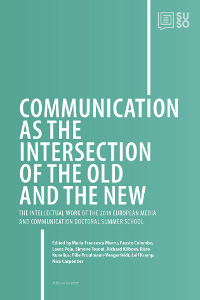
| |||
Communication
| |||
| Title chapter: | “Yay! I am officially an #estonian #eResident!” Representations of Estonian e-residency as a novel kind of state-related status and affiliation on Twitter | ||
| Author: | Piia Tammpuu | ||
| Keywords: | transnationalism, digital nomadism, e-residency, self-identity, Twitter | ||
| Abstract: | New forms of translocal communication supported by digital infrastructures are seen to extend personal spaces of interaction as well as to intensify the complexity of spatial relations. Using the case of Estonian e-residency, this study examines the concept of virtual residency as a novel kind of state-related status and affiliation. Estonian e-residency is a government-supported transnational digital identity scheme which gives non-residents of the country remote access to the state’s digital infrastructure and e-services via means of digital authentication. Drawing on theorisations on the construction of the self and identity in social media, the study scrutinizes the ways in which e-residency is represented among its users by analysing personal “status-updates” about becoming an e-resident on Twitter. The analysis focuses on self-identities and attachments that are accentuated in relation to one’s status as an e-resident, and on the types of digital subjectivity constructed around the concept of e-residency. The analysis is based on a small-scale Twitter corpus consisting of thematic tweets (n=525) by individual Twitter users (n=271) who explicitly present themselves as Estonian e-residents in their microblogging practices. Qualitative textual analysis combined with basic quantitative metrics are applied as the main method in the study. The findings suggest that digitally enabled transnationalism and digital nomadism appear as the two major perspectives from which one’s self-identity as an Estonian e-resident are constructed. The significance attributed to one’s status as an e-resident emphasizes the increased opportunities of connectivity and mobility that are seen as part of one’s self-realisation in contemporary societies. | ||
| Click here to download full chapter [pdf] | |||
|
The | |||